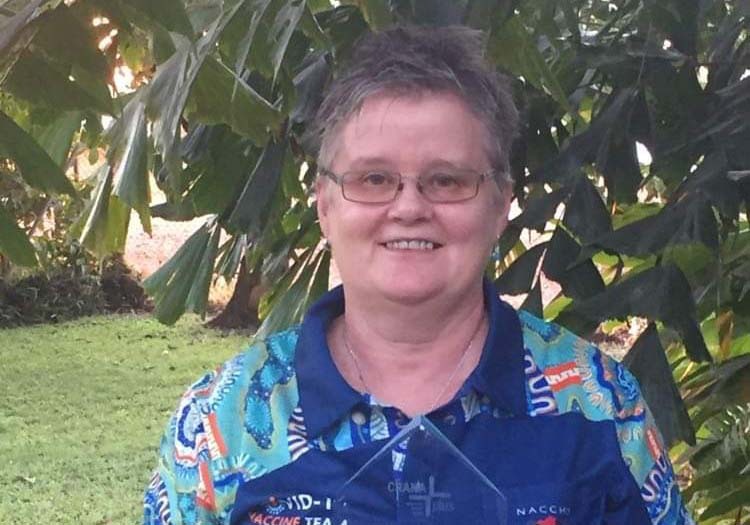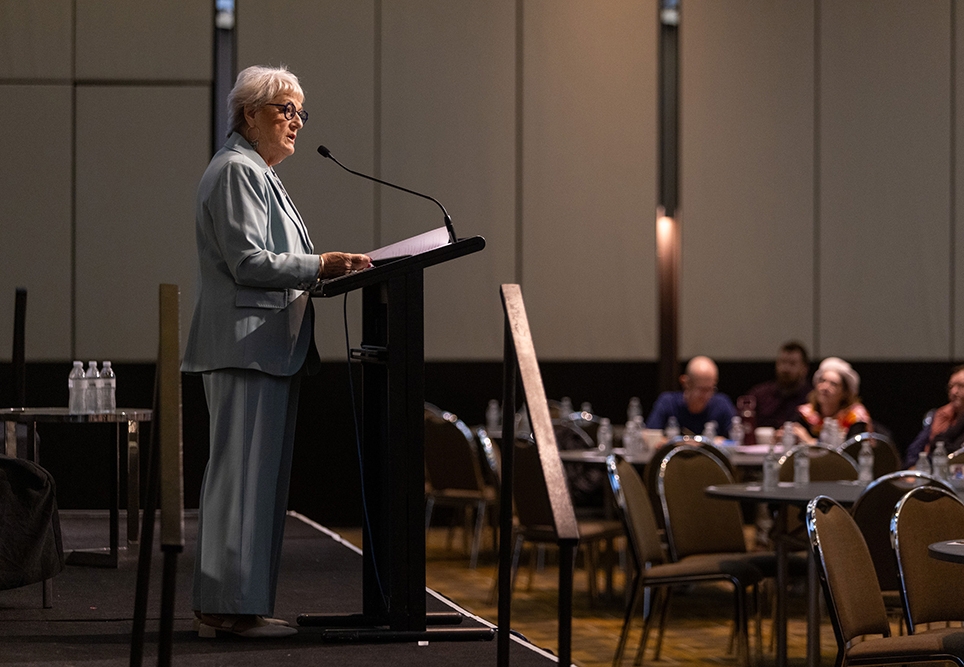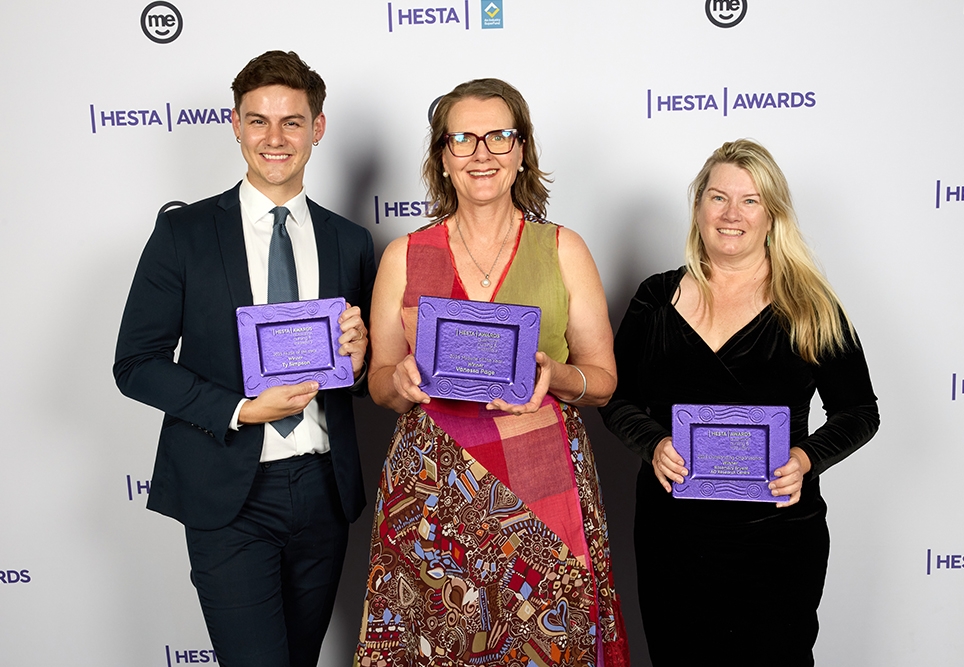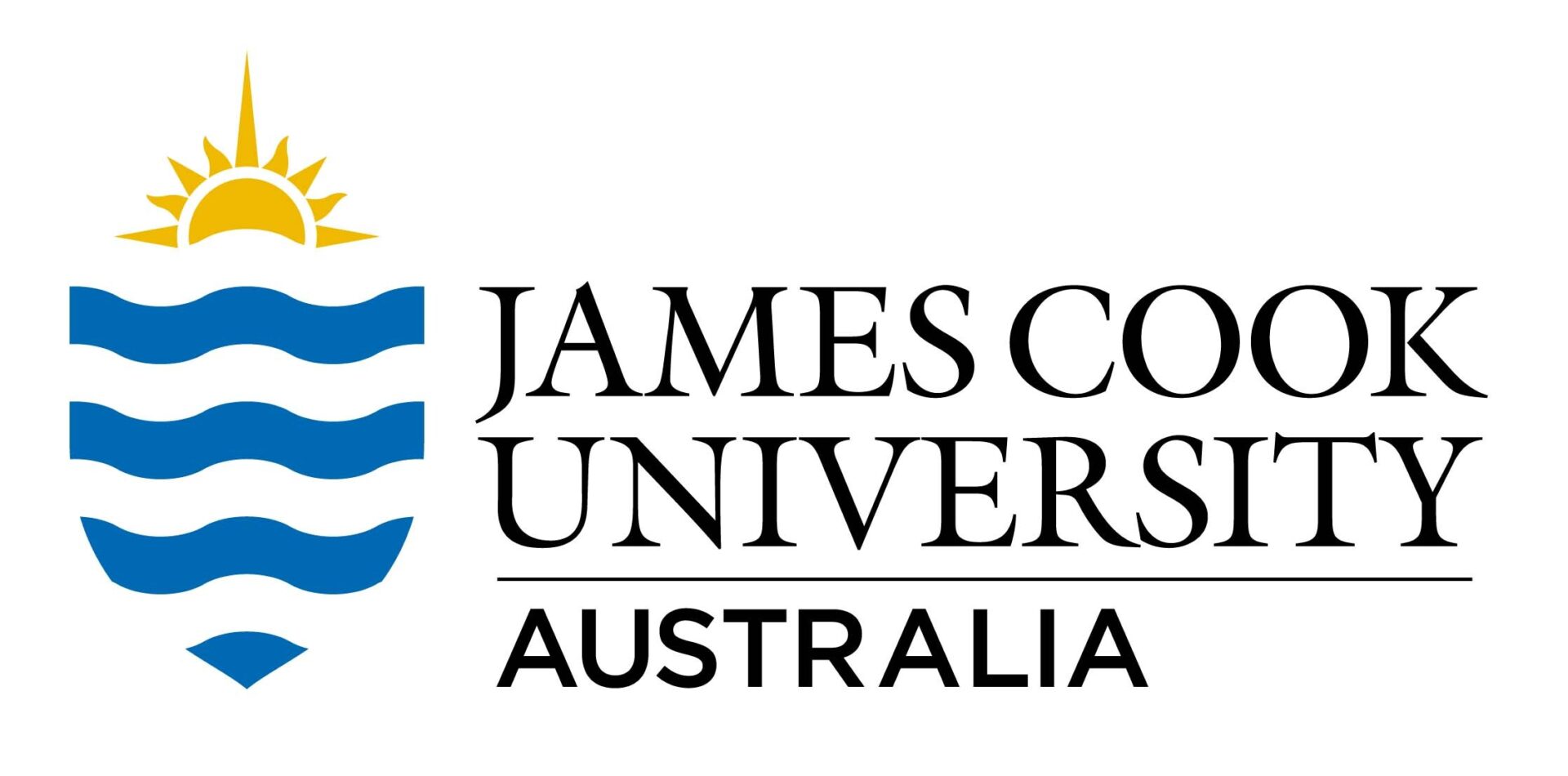
When Remote Area Nurse and Nurse Practitioner Helen Parker received the phone call to say that she had taken out this award, she was in Maningrida, where she works as a Child Health Nurse with the Mala’la Health Service.
Upon hearing the news, she says “I was overwhelmed, I started crying… I felt really honoured and proud of myself.”
For Ms Parker, a placement in Cherbourg, under-taken during her studies at QUT in Brisbane, gave rise to a passion that would last a lifetime.
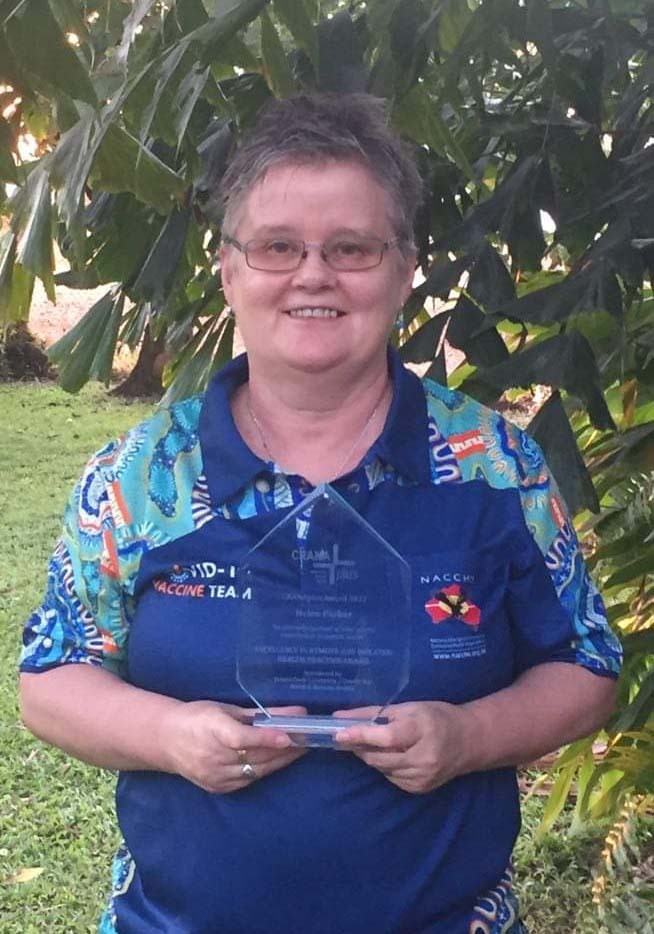
“It gave me a brief experience of working in an Aboriginal community,” she says. “For me, I knew I needed to get five to six years of experience before I could go out bush… I thought, one day I’m going to do this.”
Her transition to remote began with a few years working out of Alice Springs on the two-year pathway in place back then.
In 2003, she lived in Saudi Arabia for three years where she worked as a nurse with the assistance of a translator – an experience which she has written a book about, called Through My Eyes.
After a stint back Down Under, Ms Parker then worked for Doctors Without Borders at an emergency mission in Lockichoggio, Kenya.
Since returning to Australia, she has worked predominantly in remote locations in the Top End.
Becoming a nurse practitioner
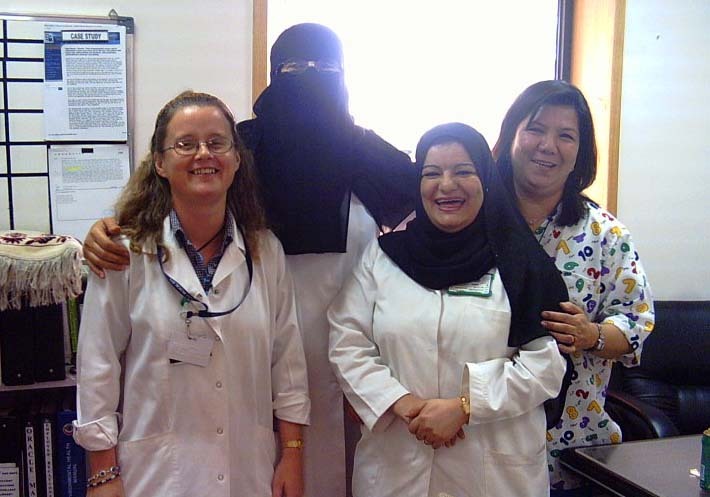
Ms Parker became a Nurse Practitioner while working remote and is endorsed as a generalist, an achievement which “wasn’t easy” but which she is proud of having undertaken. However, she is eager to acknowledge the wide scope of practice faced by many RANs.
“There’s a lot of RANs out there who are functioning as nurse practitioners,” she says. “The expanded scope of practice that most of them are working under – it really is unbelievable.”
Though Ms Parker has worked as a Nurse Practitioner at multiple points of time, including within the Queensland mining industry, she says for her it “still wasn’t the same as working up here in the NT… I was always going to come back. You can do so much more out in the bush.”
“It’s what you get used to”
Ms Parker recalls one of her first memories of working remote in Yuendumu.
“I went outside my house and all these children swarmed around me – because I’m really pale and I had blonde hair – and touched me all over my skin. When you’re not used to that, that’s quite confronting. I remember thinking, ‘Oh, I’m so overwhelmed, all these kids all around me.’ They’re just really friendly. That was a strong memory from the beginning.”
Over her 15 years, Ms Parker has grown accustomed to the unique experiences of working in a remote environment and misses them when she steps away.
“When I worked in Central and Katherine, in those communities, a lot of people speak Creole, plus their other languages,” she says.
“In Maningrida, there’s seven to eight languages and none of them sound like each other. Over time you might pick up some common words, just little ones. You hear all of this [unfamiliar language] going on around you… It’s just normal for me.
“When I went back to Hobart for a while, it just felt like ‘something’s not right’. I had a lot of trouble trying to assimilate back into it – and I never really did. It’s what you get used to, and it becomes normal.”
Providing holistic primary health care
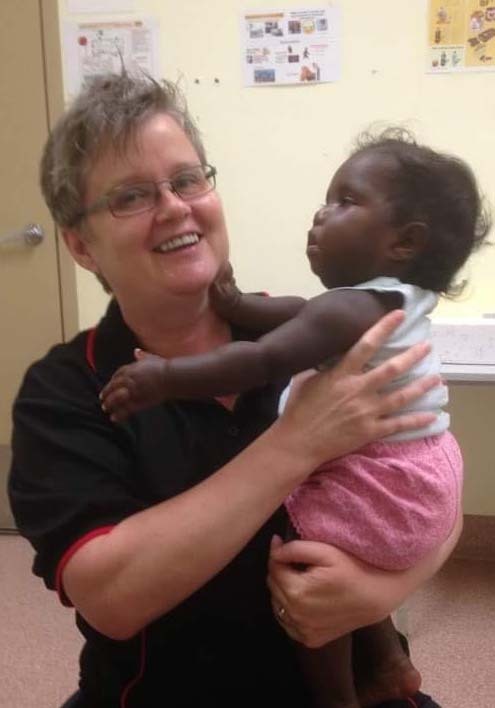
Ms Parker’s present place of work, the Mala’la Health Service, has recently transitioned from Territory Government control to be run by Aboriginal Medical Services. The transition has brought about a growing focus on primary health care, a longstanding passion of Ms Parker’s.
“To get some proper headway or improvements in health, it’s a lot more besides antibiotics and putting a band-aid on,” she says. “It’s about taking on the family, the culture, the languages, the way you speak… to be able to give that holistic care.
“I’m seeing children now, but parents can come in. I’m doing all that: family dynamics and asking who’s doing this, who’s doing that. If the grandparents are well and the parents are well, the child’s going to be well.
“It’s going that step further, using the yarning tool. The consults aren’t 10 minutes. They’re as long as what they need to be.”
